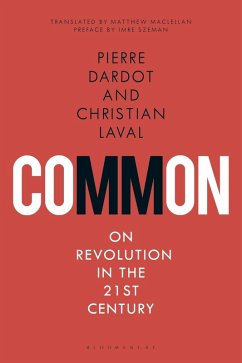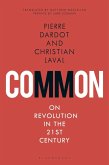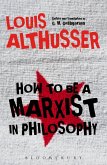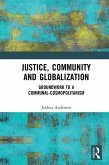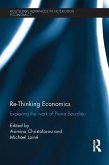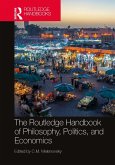Around the globe, contemporary protest movements are contesting the oligarchic appropriation of natural resources, public services, and shared networks of knowledge and communication. These struggles raise the same fundamental demand and rest on the same irreducible principle: the common.
In this exhaustive account, Pierre Dardot and Christian Laval show how the common has become the defining principle of alternative political movements in the 21st century. In societies deeply shaped by neoliberal rationality, the common is increasingly invoked as the operative concept of practical struggles creating new forms of democratic governance. In a feat of analytic clarity, Dardot and Laval dissect and synthesize a vast repository on the concept of the commons, from the fields of philosophy, political theory, economics, legal theory, history, theology, and sociology.
Instead of conceptualizing the common as an essence of man or as inherent in nature, the thread developed by Dardot and Laval traces the active lives of human beings: only a practical activity of commoning can decide what will be shared in common and what rules will govern the common's citizen-subjects. This re-articulation of the common calls for nothing less than the institutional transformation of society by society: it calls for a revolution.
In this exhaustive account, Pierre Dardot and Christian Laval show how the common has become the defining principle of alternative political movements in the 21st century. In societies deeply shaped by neoliberal rationality, the common is increasingly invoked as the operative concept of practical struggles creating new forms of democratic governance. In a feat of analytic clarity, Dardot and Laval dissect and synthesize a vast repository on the concept of the commons, from the fields of philosophy, political theory, economics, legal theory, history, theology, and sociology.
Instead of conceptualizing the common as an essence of man or as inherent in nature, the thread developed by Dardot and Laval traces the active lives of human beings: only a practical activity of commoning can decide what will be shared in common and what rules will govern the common's citizen-subjects. This re-articulation of the common calls for nothing less than the institutional transformation of society by society: it calls for a revolution.
If we accept the authors' repeated contention that our present and future are profoundly bleak, we must equally recognize that a new way of engaging our present and future in common is required. This new way of engaging is precisely what Dardot and Laval offer under the name the common-the political principle that informs the collaborative, deliberative activity whereby new customs and institutions may be formed to transcend the social and political conditions threatening humanity and our world itself. Confluence: The Journal of the AGLSP

